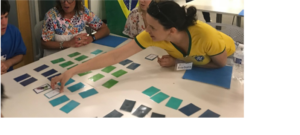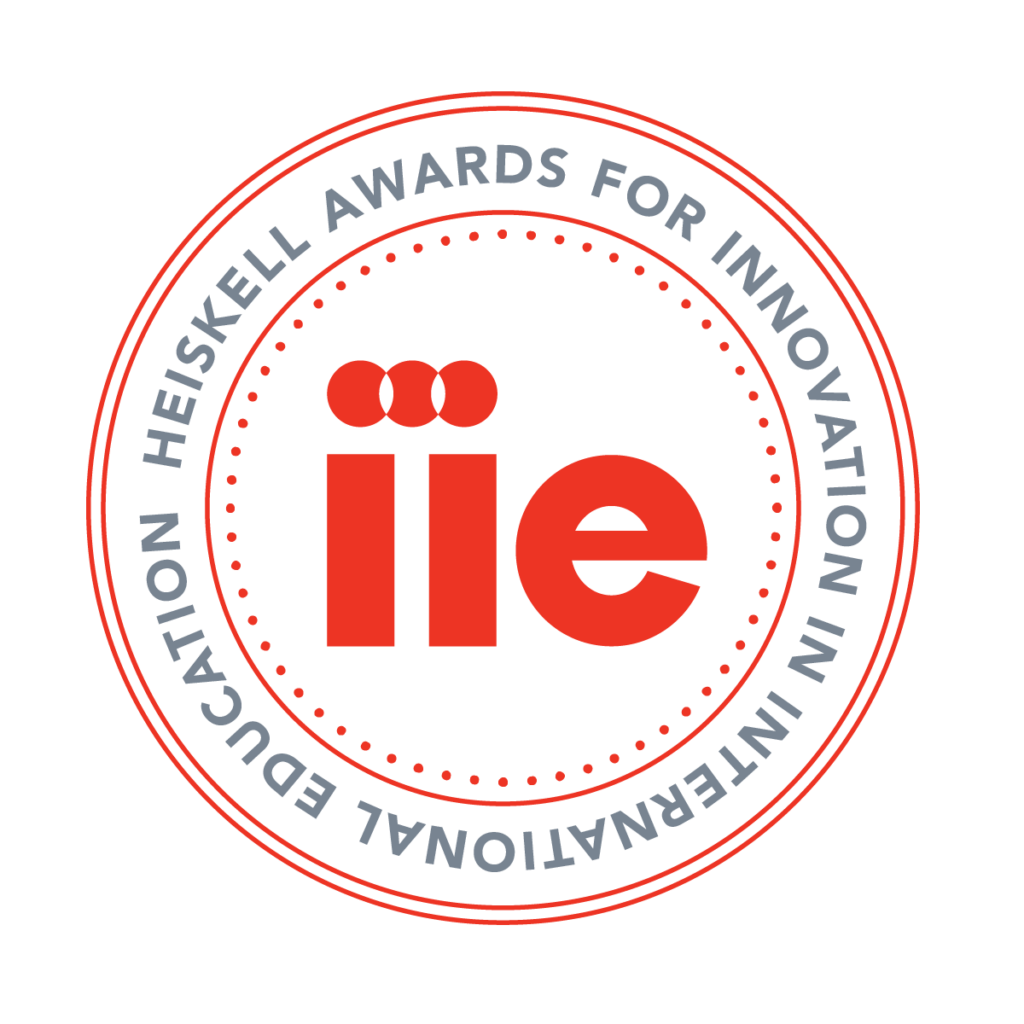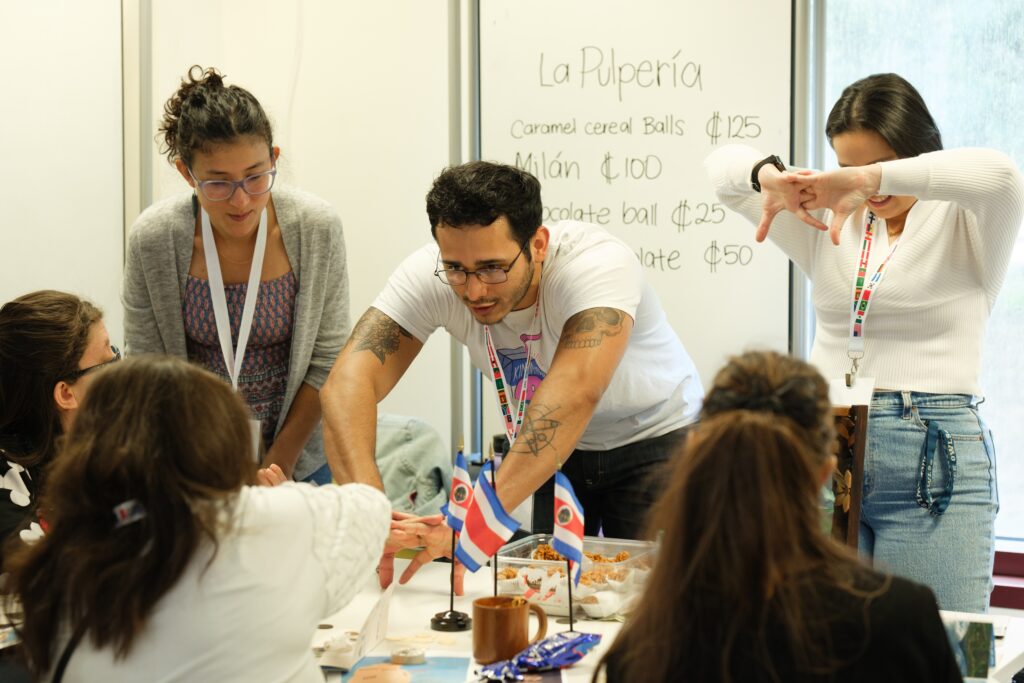Rice University’s outreach initiative, GREAT Project, received a 2023 IIE Heiskell Award for Widening Access to International Education.
What is the GREAT Project, and what access does it provide?
The GREAT Project (Global RICE Empowers Academics & Training) is an effort to promote access and inclusion to higher education for individuals who might otherwise encounter difficulties to achieve this kind of learning opportunity. Rice’s mission seeks to engage the local Houston community. The GREAT Project does just that, by offering globally based immersion classes by graduate international students who teach, mentor and befriend young adults with Intellectual and Developmental Disabilities (IDD) about their countries. The special needs participants, who generally would not apply to Rice’s academic university degree programs, have access to the Rice’s academics, international learning, and recognition through this program.
The GREAT Project creates informal, up-beat, academic and cultural classes to teach IDD young adults about specific countries/regions, and other international concepts. With the global backdrop, the workshops have weaved in information on countries, culture, language, mathematics, social sciences, geography, art, physics and biology. Country-specific immersion classes have been held on Brazil, China, Ecuador, Costa Rica, Latin America and India. Other classes have also included an art walk and an international artifacts discussion and emergency/first aid.
What inspired this program to start and grow?
I was inspired to create the GREAT project when I attended the IIE 2014 International Academic Partnership Program (IAPP) to Brazil. In meeting other international educators and learning about creative programs for global engagement, I began to see how important bringing two very distinct groups together is for creating awareness of the needs of the other. My experience and passion for both international students and special needs young adults caused me to consider the unique challenges each group faces–and how they could be complimentary at times.
Simultaneously, Rice requires goal-setting and measured accountability. When we were encouraged to create an idea “outside the box,” I envisioned a global education program where international students teach classes to special needs young adults. In turn, those with learning differences would inadvertently sensitize students from around the world about the unique gifts and challenges they face.
What are the program’s strategic goals?
There are several, which include:
- Providing professional development opportunities to international students.
- Providing access and inclusion opportunities to the Rice campus for individuals who might not otherwise have the opportunity.
- Giving back to our local community.
- Creating a safe, productive, and joyful space for two-way learning and awareness.
- Partnering with community groups.
- Growing Rice’s global impact.
What were the beginnings of the program, and how has it progressed?

The program began with the Brazilian student group. While visiting Brazil, I witnessed several examples of how beautifully people with special needs were integrated into families and community. The Brazilian student president and club members embraced the idea and helped create our inaugural immersion Brazilian workshop in early 2019. The learning areas they taught the IDD students were Portuguese, mathematics through making Brazilian candy, biological science with nature and animals, and geography.
The teaching leadership of the Brazilian group then mentored, trained, and befriended the Chinese graduate students. The Chinese immersion class included mathematics through counting stuffed panda bears, Chinese calligraphy, geography, culture, Mandarin, and science. The Brazilian mentors supported and continued to volunteer and help the Chinese students with the classes. The special needs young adults deepened their friendship and admiration for the Brazilian and the Chinese students.
The same pattern of mentorship, training, and friendship between the teaching group leaders has continued, and we have expanded the mentors to many new students and groups. Some who have graduated and are now Rice alums continue to return to volunteer and to provide support and friendship to the new teachers and leaders. Community volunteers and office staff volunteers attend each class. This continued through recent classes such as “Walk Through Latin America” and “India: Colors, Creativity, and Curry.”
How does the campus support this program?
The program has shared funding as each young adult participant pays a minimal fee that goes to offset class supplies and costs. In addition, the OISS-International Connections office has earmarked funding to last four to five years into the future. The costs generally are used for training for the graduate international students, as well as their meals after the immersion workshops. The university provides the physical space, and leadership has been mostly done through motivation and individual passion, as well as an advisory board that has supported our work and guided our decision-making.
What are the challenges, adaptations, and opportunities to replicate to other international education programs?
The main challenge of the program is finding participants, as well as fitting into the busy schedules of graduate international students. We adapt using an operational “template” for the class, yet it remains inherently flexible as each workshop is for different countries, regions, continents, or themes. This way it is easy to replicable at other schools.
Participants expressed their positive experiences as well:
“The GREAT project was a valuable first step in pursuing my research interest, the political engagement of people with disabilities. I learned so much through the project: how young adults with special needs learn, interact, and care for each other… but more importantly, I had so much fun!”– Asahi (Japan)
“I think that it is simply one of the best experiences that a professional can have. Life in academia goes beyond just research. It is also transmitting and seeing the happiness of these young adults in their eyes. There is nothing more to say, what a GREAT project.”– Felipe (Colombia)
About the IIE Heiskell Awards

The Institute of International Education (IIE) created the IIE Andrew Heiskell Awards for Innovation in International Education in 2001 to promote and honor the most outstanding initiatives that are being conducted in international higher education by IIENetwork members. By recognizing excellence and innovation, IIE aims to support IIENetwork members in their endeavors and to signal a new and important role for international education on campus. The winning initiatives also receive $1,000 to contribute to their ongoing success.
Browse our publications on campus internationalization or explore our international partnerships and higher education capacity building programs for institutional leaders seeking to develop strategy and capacity in all aspects of internationalization.
